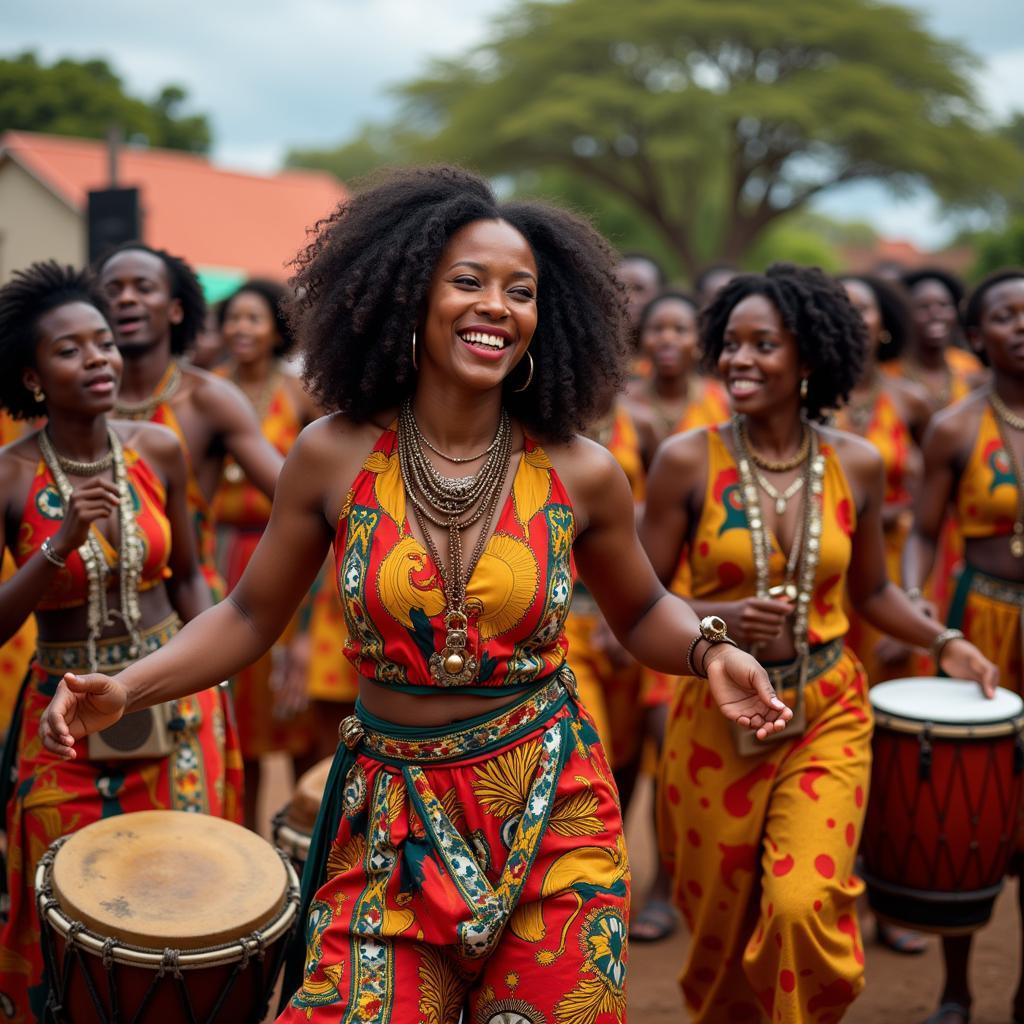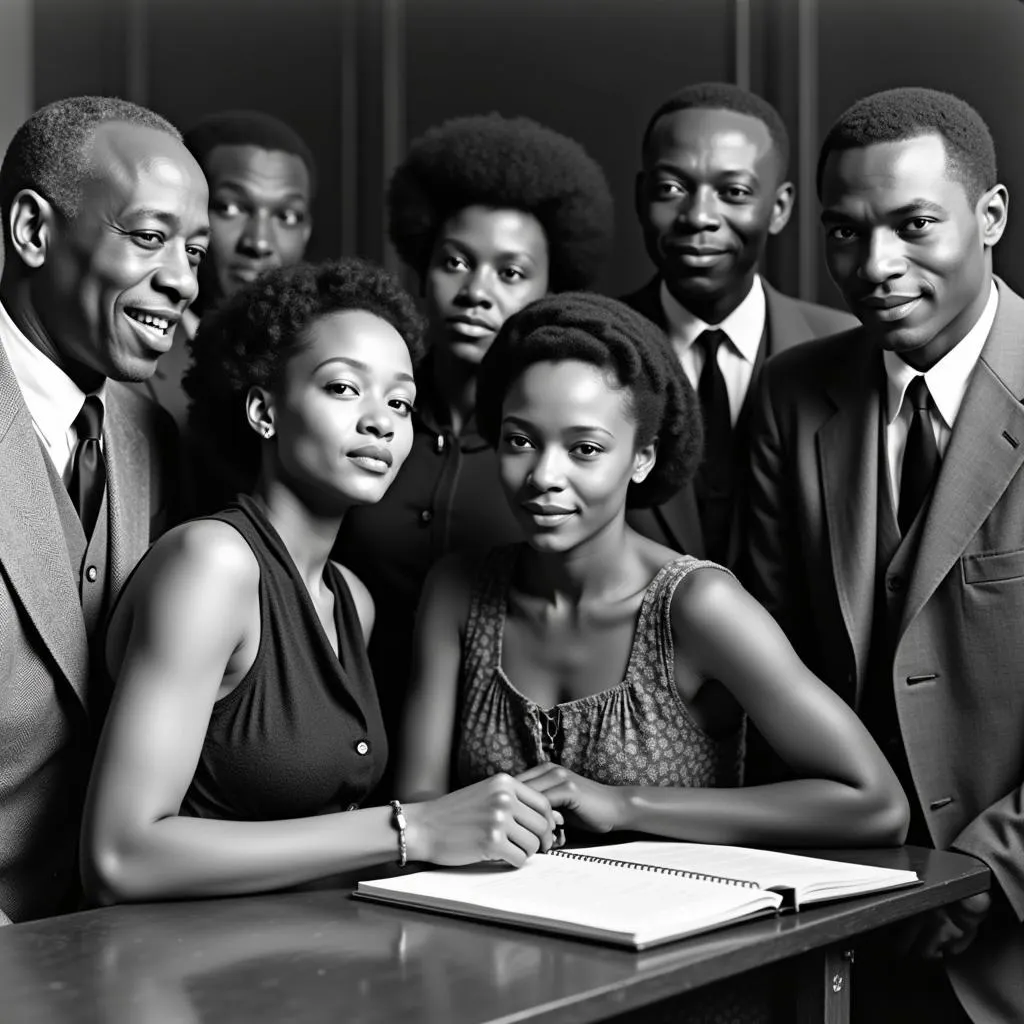The African Cape Top: A Journey Through Style, Culture, and History
The vibrant and diverse continent of Africa pulsates with a rhythm that echoes through its fashion, music, and art. The African Cape Top, a garment steeped in tradition and symbolism, stands as a testament to this rich cultural tapestry. This article delves into the captivating world of the African cape top, exploring its origins, significance, and modern interpretations.
A Glimpse into the Past: Unveiling the Origins
While pinning down the exact origins of the African cape top proves to be a challenging feat due to the vastness and intricate history of the continent, its presence can be traced back centuries. Historically, loose-fitting garments draped over the body were commonplace in many African cultures, serving both practical and symbolic purposes. These early forms of the cape top provided protection from the elements, signified social status, and often served as a canvas for intricate patterns and embellishments.
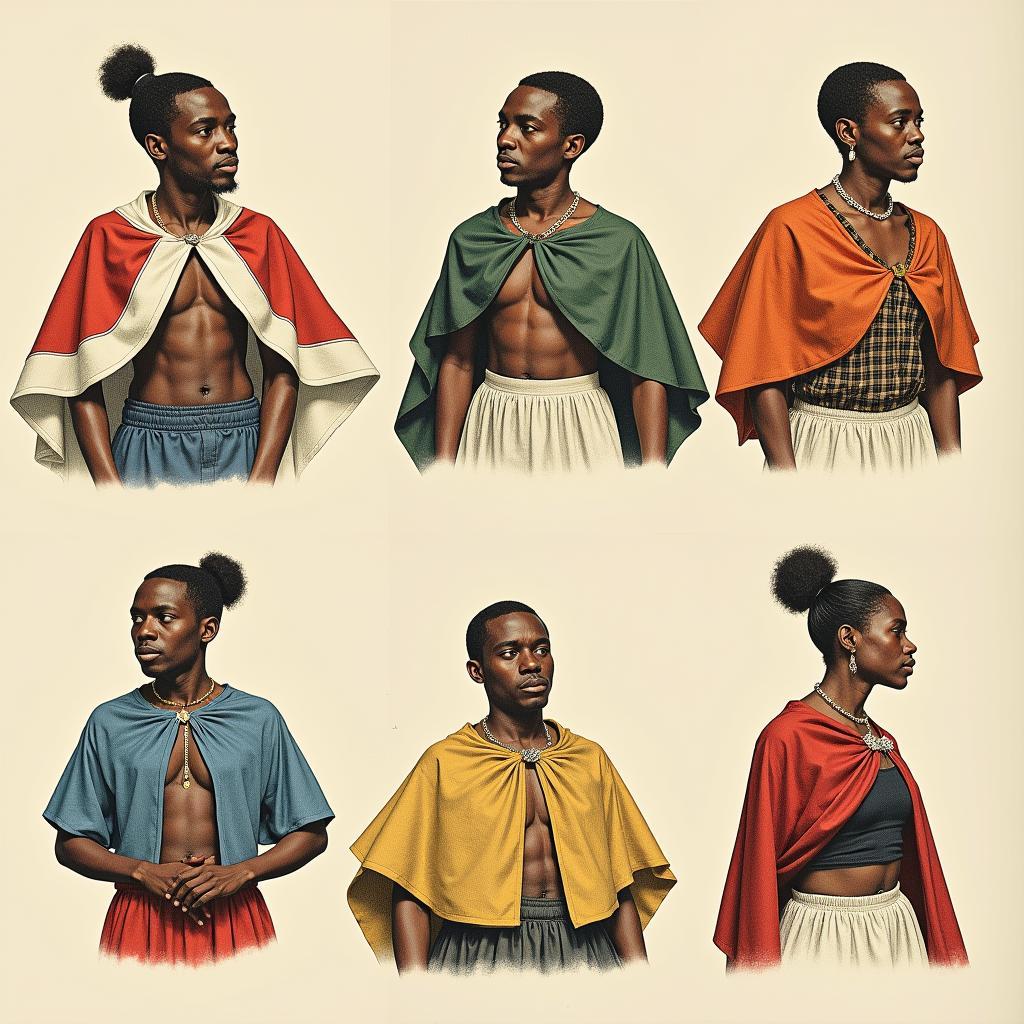 Early Forms of African Cape Tops
Early Forms of African Cape Tops
For instance, in West Africa, the Yoruba people have a long tradition of adorning themselves in flowing garments, with the “Agbada,” a large, flowing robe often worn by men, bearing a resemblance to the modern cape top. Similarly, the “Boubou” worn in various parts of North and West Africa embodies the essence of draped elegance that defines the cape top. These traditional garments, often passed down through generations, carry immense cultural significance and offer a glimpse into the rich sartorial heritage of Africa.
The African Cape Top: A Tapestry of Symbolism and Significance
Beyond its practical applications, the African cape top is steeped in profound symbolism, reflecting the spiritual beliefs, social structures, and cultural values of diverse African communities.
A Celebration of Identity and Heritage
The vibrant colors, intricate patterns, and unique designs often found on African cape tops serve as a visual language, communicating a wearer’s tribal affiliation, social standing, or even personal beliefs. The use of specific colors, for instance, often holds deep meaning. Red, in some cultures, signifies strength and power, while gold represents wealth and prosperity.
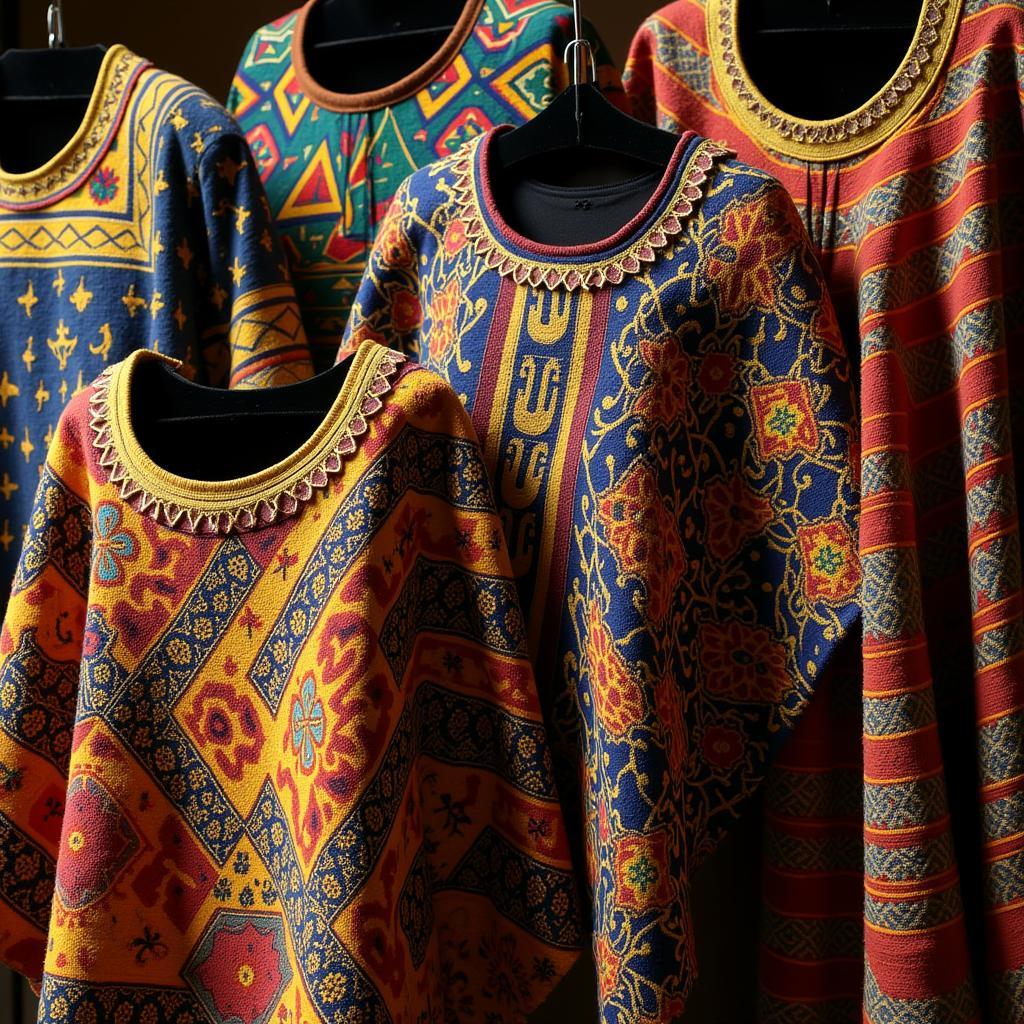 African Cape Top Patterns and Symbols
African Cape Top Patterns and Symbols
A Symbol of Power and Prestige
In many African societies, the cape top has been historically associated with leadership, authority, and spiritual significance. Leaders, chiefs, and spiritual figures often donned elaborate cape tops as a symbol of their status and influence. These garments, often made from luxurious fabrics and adorned with intricate beadwork or embroidery, commanded respect and admiration.
A Canvas for Storytelling
The African cape top transcends its function as a mere garment and transforms into a canvas for storytelling. Through carefully chosen motifs, patterns, and embellishments, these garments narrate tales of ancestral lineage, historical events, or spiritual beliefs. Passed down through generations, each cape top becomes a living testament to the rich oral traditions and cultural heritage of a community.
The African Cape Top in the Modern World: A Fusion of Tradition and Contemporary Style
Today, the African cape top has transcended geographical boundaries, captivating the global fashion scene with its effortless elegance and versatility. Designers from across the world have embraced the garment, incorporating its flowing silhouettes and vibrant patterns into their collections.
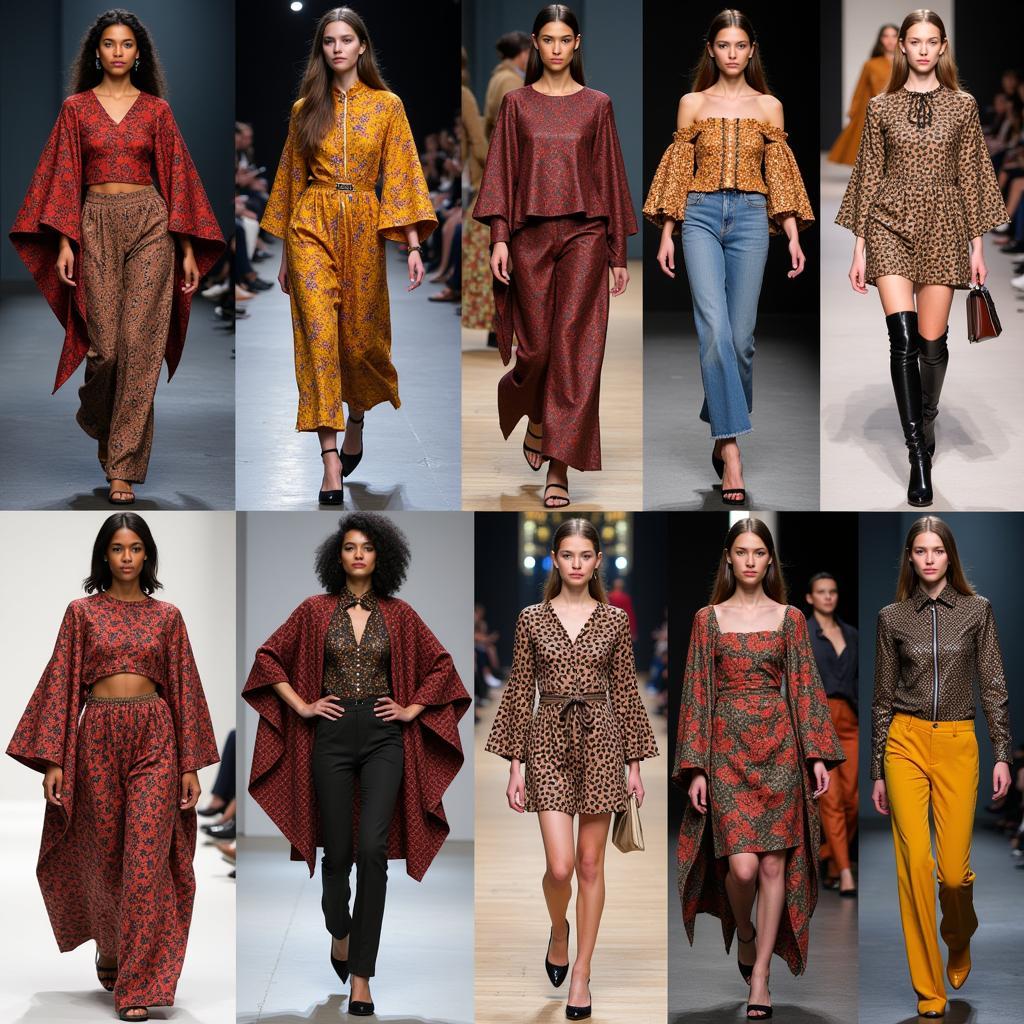 Modern Interpretations of the African Cape Top
Modern Interpretations of the African Cape Top
From Runway to Everyday Wear
On the runways of international fashion shows, the African cape top has been reimagined in countless ways, from flowing evening gowns to chic, minimalist tops. This resurgence of interest has also trickled down to everyday fashion, with fashion enthusiasts around the world embracing the garment’s ability to elevate any outfit.
A Symbol of Empowerment and Global Chic
The African cape top’s journey from traditional garment to global fashion statement is a testament to its enduring appeal. By embracing this garment, individuals not only embrace a piece of Africa’s vibrant culture but also make a powerful statement about individuality, self-expression, and global awareness.
Conclusion: Embracing the Legacy of the African Cape Top
The African cape top, more than just a piece of clothing, embodies the spirit of a continent. It speaks of resilience, creativity, and a deep connection to heritage. As we celebrate the beauty and versatility of the African cape top, let us also remember the stories it carries – stories that connect us to a rich past and inspire us to embrace the power of cultural expression.
